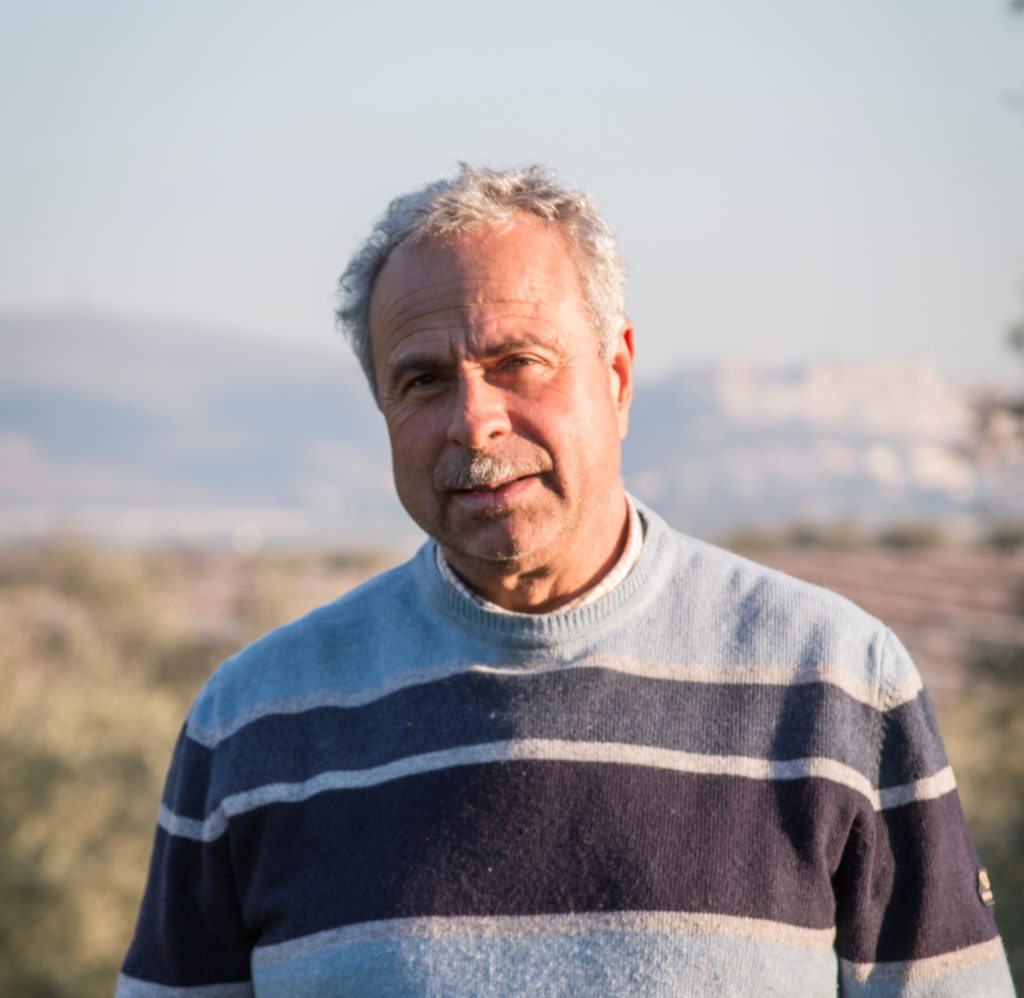– part one, the 1960s –
Return to the land? Interview with someone who never left

In a period of sanitary emergency in which food production has returned to being a central theme for everyone, we would like to share with you the story of a man who has never left agriculture and who is tending to his fields in these very days and weeks, taking care of olive and almond trees. We interviewed Michele Lobascio, the father of the Terradiva family, the one who consolidated the family farm long before the brand was born.
Behind the brand and the choice of organic agriculture there are years of experiences, efforts, battles, human relationships, of social changes in Southern Italy and in the way of being farmers. The interview is divided in two parts.
Part 1
What are your first memories related to agriculture?
I have been going to the fields since the age of 7, helping my father. At that time we also had animals: the horse, the mule, the mare. We children assisted adults in animal surveillance during the “controra“, when my father and uncles rested after lunch. They worked from dawn, around 5 in the morning, until sunset, so the early afternoon was the time for the animals and workers to rest before starting again.
What were animals used for in agricultural work?
The animals helped us plow the land, they were the tractors of the time. They were also important for the transport of goods and the movement between the town – Minervino Murge – and the countryside. On the cart pulled by a mule and mare it took us two hours to travel to the fields that my father cultivated on the Murgia.
Plowing the soil is a very important activity for the cultivation of plants since it allows to till the clods of earth and therefore to make the soil more suitable for the seeds of the plants. During my childhood we did this thanks to the animals and used the equivalent of three current working days to plow one hectare of land, something today we do in two hours.
Other activities in which I helped my father were the harvest of olives and grapes and the transport of the pruning waste from the vineyards and olive trees, which we piled off the field.

As a child, what was your idea of the farmer’s job?
An exhausting job, because as a farmer you are forced to stay out even in bad weather: the sun, the wind, the rain, the cold. I didn’t like this aspect. At the same time, I perceived the work of the farmer as independent in the organization: even though my father and grandfather were sharecroppers, they were free to organize their activities as they liked best.
What did it mean to be a sharecropper?
The sharecropping was a form of land management: the owner made the land available, the laborers the work, the arms and the organization.
Originally the harvest was divided 50% between owners and laborers, then there were struggles waged by laborers who managed to win 60% of the harvest. Later on the laborers asked that the owner also provide the fertilizer.
My father, along with others, at some point left the sharecropping, since it was not remunerative. I still remember when the owner came to visit us in the countryside with his Fiat 1100 car: he observed us and asked us children to collect the almonds fallen on the ground during the transport of the nets full of fruit from the trees to the place where we put them in the bags, and we collected them.
In the summer, when we finished school, we lived in the countryside, we didn’t go back to town for at least two weeks or a month, we all slept, children and adults on a bed that my father had built on arrival with two bales of straw.
We woke up before sunrise and went to bed immediately after sunset. There were some friends of my father who told stories, tales, after feeding the animals and before going to sleep. The animals were well cared for, because mules and horses were the tractors of the time, they were cleaned and groomed. The fox dogs were constantly around us and kept us company. I don’t know why, even though the dogs changed, their names were always Giglio and Bobby.


